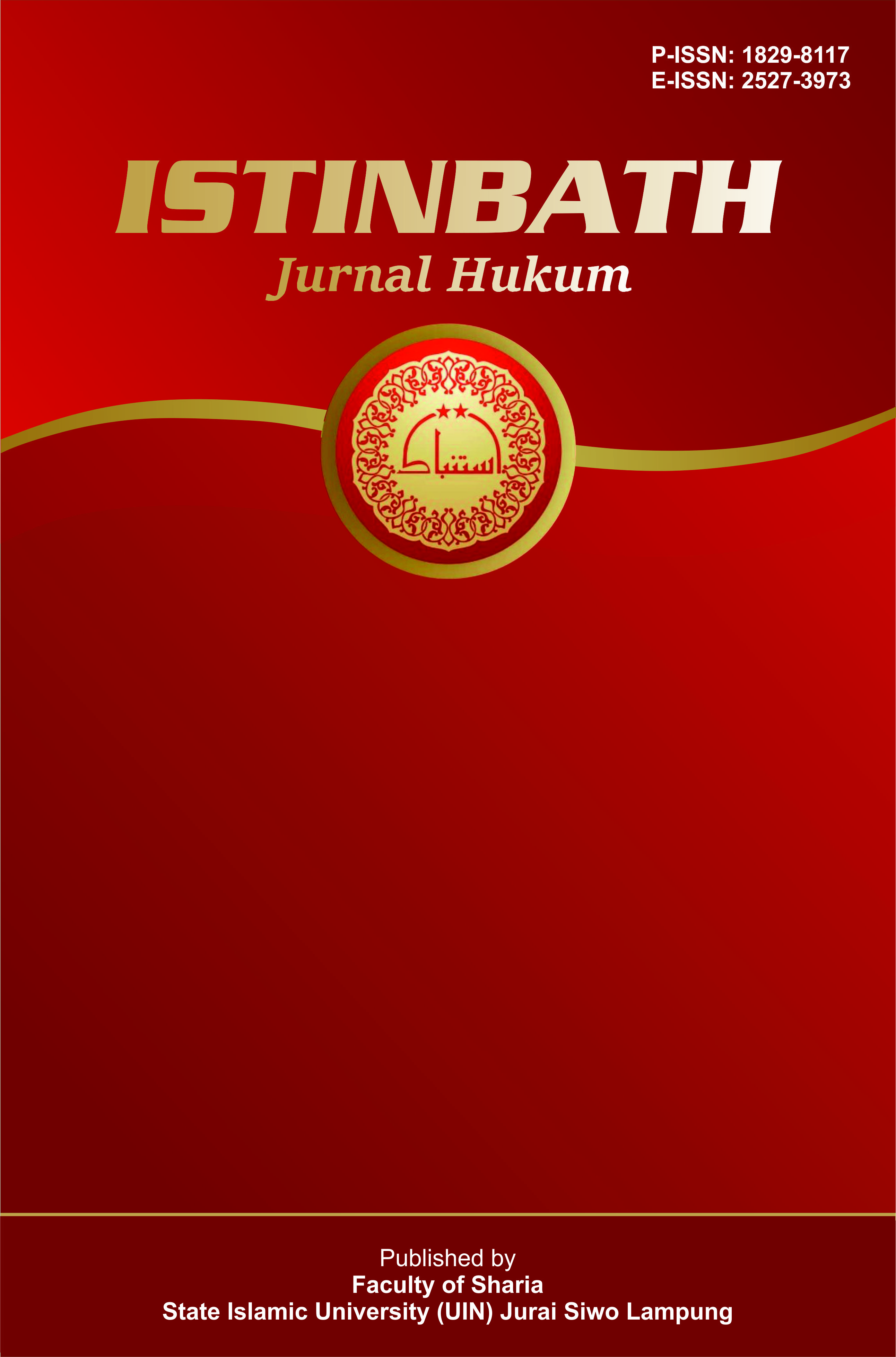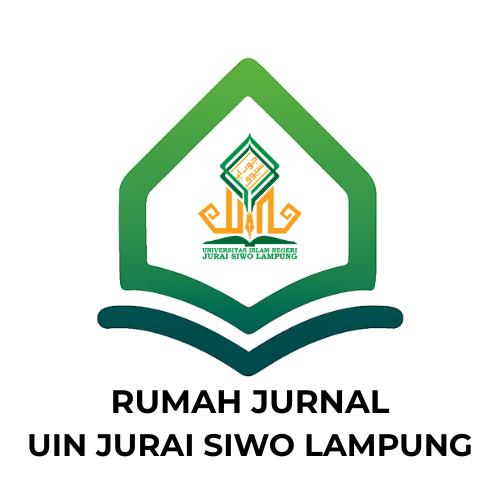The Controversy of the Death Penalty for Narcotics Dealers: A Review of Indonesian Criminal Law and Islamic Criminal Law
DOI:
https://doi.org/10.32332/istinbath.v22i01.10346Keywords:
Death Penalty, Narcotics Dealers, National Criminal Law, Islamic Criminal Law, Ta'zirAbstract
This study explores the application of the death penalty to narcotics traffickers within the frameworks of Indonesian national criminal law and Islamic criminal law. Under Law Number 35 of 2009 concerning Narcotics, the death penalty is imposed as a sanction for severe drug-related offences. In Islamic criminal law, punishment falls under ta’zir, which allows the state to impose discretionary penalties based on the gravity of the harm caused and the need to protect public welfare. Fatwas issued by the Indonesian Ulema Council (MUI) and the Council of Senior Scholars in Saudi Arabia affirm that capital punishment may be implemented under ta’zir to combat the growing threat of drug trafficking. This research aims to examine the legal foundation and implications of the death penalty in both legal systems, with an emphasis on justice, deterrence, and social protection. The study employs a normative juridical method and a comparative approach, analysing statutory laws and Islamic legal doctrines. Findings reveal that while both systems permit the death penalty, its application must consider broader dimensions such as prevention, rehabilitation, and social consequences. The study concludes that the death penalty, when implemented prudently and within the scope of legal and ethical standards, can function as a strategic instrument to address narcotics trafficking. The death penalty should not be viewed merely as a form of retribution, but rather as a comprehensive legal response aimed at preserving social order and public health.
References
An-Naisabury, Abu al-Husain Muslim Ibnu Al-Hajjaj al-Qusairy. Shahîh Muslim (Juz 3). Arabiyah: Dâr al-Kutubi Al-Sunnah, t.t.
Archimada, Satria Purnama. “Penegakan hukum terhadap penyalahgunaan narkotika oleh anak di Kabupaten Sleman.” Lex Renaissance 6, no. 3 (2021): 493–504. https://doi.org/10.20885/JLR.vol6.iss3.art5.
Budiman, Muhammad Hafied. “Implementasi Pasal 54 Undang-Undang Nomor 35 Tahun 2009 tentang Narkotika terhadap pelaku tindak pidana narkotika (Studi di Badan Narkotika Nasional Provinsi Sumatera Barat).” Brawijaya Law Student Journal 2 (2016).
Chan, Wendy-Chen. “Death Penalty for Drug Offenders in Southeast Asia: Weakening of Resistance to Change?” International Journal for Crime, Justice and Social Democracy, 2025. https://doi.org/10.5204/ijcjsd.3681.
Chen, Liang, dan Suresh Kumar. “Human rights implications of drug policies in developing countries.” Human Rights Review 21, no. 4 (2020): 345–62. https://doi.org/10.1007/s12142-020-00601-5.
Daud, Abu. Sunan Abi Daud (Hal. 326, Hadis No. 3674). Indonesia: Maktabah Dahlan, t.t.
Daud, Syahran Madani, Muhammad Ilham Bafadhal, dan Muhammad Rapik. “Menantang humanisme; Perspektif Al-Quran terhadap penerapan pidana mati bagi pengedar narkotika.” PAMPAS: Journal of Criminal Law 4, no. 3 (2023): 392–410. https://doi.org/10.22437/pampas.v4i3.28534.
Efendi, B., dan W. Handoko. “Implementation of criminal law in handling narcotics cases in Indonesia.” Pena Justisia: Media Komunikasi dan Kajian Hukum 21, no. 2 (2022). https://doi.org/10.31941/PJ.V21I2.2678.
Girelli, Giada. “‘Alternative facts’: Public opinion surveys on the death penalty for drug offences in selected Asian countries.” International Journal of Drug Policy 92 (2021): 103155. https://doi.org/10.1016/j.drugpo.2021.103155.
Hartanto, Hartanto, dan Bella Setia Ningrum Amin. “The effectiveness of the death penalty as a preventive action in suppressing the number of narcotics crimes in Indonesia.” ScienceRise: Juridical Science 1, no. 15 (2021): 29–37. https://doi.org/10.15587/2523-4153.2021.225793.
Hartini, Sri, Annisa Aminda, dan Ande Aditya Iman Ferrary. “Hukuman mati bagi pengedar narkoba di Indonesia.” YUSTISI 11, no. 3 (2024): 431–37. https://doi.org/10.32832/yustisi.v11i3.17908.
Hermanto, Hermanto, Sugiarto Efendi, dan Asy’ari Asy’ari. “Criminal sanctions for drug traffickers according to Law Number 35 of 2009 regarding narcotics: A perspective from Islamic criminal jurisprudence (Fiqh Jinayah).” ALFIQH Islamic Law Review Journal 2, no. 3 (2023): 153–68.
Herwidianto, Jodya Bintang. “Efektifitas hukuman mati pada kejahatan narkotika di Indonesia.” Undergraduate thesis, Universitas Indonesia, 2016.
Huda, Nurul. “Pendekatan normatif-teologis dalam studi hukum Islam.” Jurnal Hukum Islam dan Peradaban 9, no. 1 (2021): 44.
i, Ahmad ibn Syuaib Abu Abdurrahman an-Nasa’. Sunan al-Nasai al-Kubra, Jilid 6. Disunting oleh Dr Abd al-Gaffar Sulaiman al-Bundari dan Sayyid Kusrawi Hasan. Beirut: Dâr al-Kutub al-Ilmiah, 1991.
International, Harm Reduction. “The death penalty for drug offences: Global overview 2024,” 2024. https://hri.global/flagship-research/death-penalty/the-death-penalty-for-drug-offences-global-overview-2024.
Jaziri, Abdurrahman al-. Fiqh ala Madzahib al-Arba’ah, Juz III. Beirut: Dar al-Qalam, t.t.
JPNN. “Indonesia eksekusi mati 8 terpidana mati kasus narkoba,” t.t. https://www.jpnn.com/news/indonesia-eksekusi-mati-8-terpidana-mati-kasus-narkoba.
Kramer, E., dan C. Stoicescu. “An uphill battle: A case example of government policy and activist dissent on the death penalty for drug-related offences in Indonesia.” International Journal of Drug Policy 92 (2021): 103265. https://doi.org/10.1016/j.drugpo.2021.103265.
Luong, Hai Thanh. “The changes in drug laws to apply the death penalty for drug-related offences in Vietnam.” Law and World 10, no. 31 (2024): 31–49. https://doi.org/10.36475/10.3.4.
Maharani, Putu Alfira Deshita, dan I. Gusti Ngurah Nyoman Krisnadi Yudiantara. “Pengaturan jangka waktu pelaksanaan pidana mati pasca ditolaknya grasi menurut hukum positif Indonesia.” Kertha Desa 11, no. 9 (2024): 3388–3401.
Marzuki, Peter Mahmud. Penelitian hukum. Jakarta: Kencana, 2017.
Muhibban, Muhibban, dan Misbakul Munir. “The relevance of Islamic law to criminal sanctions for narcotics users in Indonesia.” Journal of World Science 2, no. 5 (2023): 684–92. https://doi.org/10.58344/jws.v2i3.257.
Munawaroh, Munawaroh, Muhammad Rizal, dan Zuraidah Zuraidah. “Aplikasi hukum pidana Islam dalam penanggulangan penyalahgunaan narkotika yang dilakukan oleh anak di Desa Menanga Tengah Kec. Semendawai Barat Kab. Oku Timur.” Ta’zir: Jurnal Hukum Pidana 8, no. 1 (2024): 1–16. https://doi.org/10.19109/tazir.v8i1.22705.
Munawwir, Ahmad Warson. Al-Munawwir: Kamus Arab-Indonesia. Yogyakarta: Pustaka Progressif, 1984.
Muslim, Imām. Shahīh Muslim, Juz ke-10. Singapura: Sulaiman Mar’i, t.t.
Nasional, Badan Narkotika. “BNN RI selenggarakan uji publik hasil pengukuran prevalensi penyalahgunaan narkoba tahun 2023,” 2023. https://bnn.go.id/bnn-ri-selenggarakan-uji-publik-hasil-pengukuran-prevalensi-penyalahgunaan-narkoba-tahun-2023/.
Nasir Sitompul, M., dan A. Sitompul. “Execution of death penalty in narcotics crime in the perspective of national law in Indonesia.” International Asia of Law and Money Laundering (IAML) 1, no. 2 (2022): 107–12. https://doi.org/10.59712/IAML.V1I2.19.
Nguyen, Tran Huu, dan Jong Soo Lee. “Community engagement in drug policy reform: Lessons from Asia-Pacific.” Asian Journal of Law and Society 10, no. 1 (2023): 89–105.
Noviyanti, Ni Putu Eka, I. Nyoman Gede Sugiartha, dan I. Nyoman Sutama. “Penjatuhan sanksi pidana mati terhadap pelaku tindak pidana narkotika terkait hak asasi manusia (Studi Kejaksaan Negeri Badung).” Jurnal Konstruksi Hukum 4, no. 2 (2023): 214–19. https://doi.org/10.22225/jkh.4.2.6806.214-219.
Nur, Fuad, dan Lade Sirjon. “Problematika pelaksanaan eksekusi pidana mati oleh kejaksaan terhadap terpidana narkotika.” Phinisi Integration Review 6, no. 2 (2023): 262–70. https://doi.org/10.26858/pir.v6i2.47450.
Prima, Jaka, dan Moh Kamaluddin. “Analisis kebijakan hukuman mati dalam kasus narkotika: Perspektif hak asasi manusia.” Jurnal Kabilah 9, no. 1 (2024): 53–64.
Putri, Dita Melati. “Hukuman pidana mati dalam KUHP baru dan perspektif abolisionalis serta retensionis.” Eksekusi: Jurnal Ilmu Hukum dan Administrasi Negara 2, no. 4 (2024): 01–13. https://doi.org/10.55606/eksekusi.v2i4.1451.
Putriani. “Death penalty and drug crime in Southeast Asia: A policy effectiveness perspective.” Jurnal Hukum dan Pembangunan 51, no. 1 (2021): 112–30.
Rafsanjani, O., dan A. Mustaffa. “Why should the death penalty not be abolished for narcotics crimes? A case study in Indonesia.” Jurnal Ilmiah Ilmu Pendidikan (JIIP) 5, no. 8 (2022): 3104–10. https://doi.org/10.54371/JIIP.V5I8.813.
Rahmadea, Kesya, dan Sunny Ummul Firdaus. “Penjatuhan hukuman mati kepada pengedar narkoba berdasarkan Undang-Undang No. 35 Tahun 2009 tentang Narkotika.” Souvereignty 2, no. 3 (2023): 304–11.
Riawan, Kadek Okta, Dewa Gede Sudika Mangku, dan Ni Putu Rai Yuliartini. “Implementasi Undang-Undang Nomor 35 Tahun 2009 tentang Narkotika terhadap korban penyalahgunaan narkotika dalam bentuk rehabilitasi di Badan Narkotika Nasional Kabupaten Buleleng.” Jurnal Komunitas Yustisia 4, no. 1 (2021): 22–34. https://doi.org/10.23887/jatayu.v4i1.33029.
Sabiq, As-Sayyid. Fiqh as-Sunnah. Beirut: Dar al-Kitab al-Araby, 1993.
Simanjuntak, Johan Pardamean, Chairun PA Nisa, Reh Bungana Br, dan Maulana Ibrahim. “Pengaruh penerapan hukuman mati terhadap pelaku tindak pidana narkotika.” Birokrasi: Jurnal Ilmu Hukum dan Tata Negara 1, no. 4 (2023): 237–47. https://doi.org/10.55606/birokrasi.v1i4.747.
Sipayung, Baren, Sardjana Orba Manullang, dan Henry Kristian Siburian. “Penerapan hukuman mati menurut hukum positif di Indonesia ditinjau dari perspektif hak asasi manusia.” Jurnal Kewarganegaraan 7, no. 1 (2023): 134–42.
Smith, John Andrew, dan Rachel Louise Doe. “Evaluating the effectiveness of drug rehabilitation programs in Southeast Asia.” International Journal of Drug Policy 93 (2021): 102934. https://doi.org/10.1016/j.drugpo.2021.102934.
Soekanto, Soerjono, dan Sri Mamudji. Penelitian hukum normatif: Suatu tinjauan singkat. Jakarta: RajaGrafindo Persada, 2001.
Soewita, Soewita, Ngatiran Ngatiran, dan Nurhayati Nurhayati. “Pelaksanaan eksekusi pidana mati narkoba ditinjau dari Undang-Undang No. 8 Tahun 1981.” Jurnal Surya Kencana Dua: Dinamika Masalah Hukum dan Keadilan 10, no. 1 (2023): 1–20. https://doi.org/10.32493/SKD.v10i1.y2023.32251.
Taimiyah, Ibnu al-. Majmu’ al-Fatâwâ, Jilid ke-34. Cet. ke-1. Bairut: Dâr al-‘Arabiyyah, 1978.
Wahyudi, Fachri. “Penjatuhan pidana mati terhadap pengedar narkotika dalam Pasal 114 ayat (2) dan Pasal 119 ayat (2) Undang-Undang Nomor 35 Tahun 2009 tentang Narkotika perspektif hak.” Ijtihad: Jurnal Hukum dan Ekonomi Islam 15, no. 1 (2021): 161–93. https://doi.org/10.21111/ijtihad.v15i1.5455.
Wardhana, Daniar Rasyid Setya, Dicky Andi Firmansyah, Er Handaya Artha Wijaya, dan Yugo Susandi. “Wewenang jaksa sebagai pelaksana putusan eksekutorial putusan pengadilan yang telah mempunyai kekuatan hukum tetap.” Halu Oleo Law Review 4, no. 2 (2020): 251–63. https://doi.org/10.33561/holrev.v4i2.14309.
Widjaja, Gunawan, dan Ririn Nurhidayanti. “Analysis of the abolition of the death penalty for drug trafficking crimes in Indonesia: The case study: Serang District Court Decision Number 837/Pid.Sus/2020/PN Srg.” International Journal of Research and Innovation in Applied Science 9, no. 5 (2024): 496–508.
Zaviril, Yudi, Irham Akbar, dan Ahmad Seputro. “Implementasi hukum pidana Islam dalam penanganan kasus narkotika di Indonesia.” Jurnal Multidisiplin Sosial dan Humaniora 1, no. 2 (2024): 37–52. https://doi.org/10.70585/jmsh.v1i2.30.
Zuhaili, Wahbah al-. Al-Fiqh al-Islami wa Adillatuh Jilid IV. Damaskus: Dar Al-Fikr, 1997.
Downloads
Published
Versions
- 2025-06-30 (2)
- 2025-06-30 (1)
Issue
Section
License
Copyright (c) 2025 Safaruddin Harefa

This work is licensed under a Creative Commons Attribution-ShareAlike 4.0 International License.













